British architect behind the Foundation funding education for children of underprivileged Thai families
Having spent 30 years in Thailand establishing the multiple-award-winning design studio, the Beaumont Partnership, Tim Beaumont is well known for his work in design and construction - and more recently his advocacy for education for the underprivileged in the kingdom.
In 2008, during the ongoing social and political unrest between the red and yellow shirts, Tim and his business partners began the Beaumont Partnership Foundation to create social change through education.
In 2008, during the ongoing social and political unrest between the red and yellow shirts, Tim and his business partners began the Beaumont Partnership Foundation to create social change through education.
|
"Due to the location accessibility from Bangkok, people are more likely to come and have a look. They are more likely to get involved once they see what we are doing,” says Tim. Through the support of his business networks, friends and family, the Foundation funded the Ruam Pattana School in Chaiyaphum, which started operating in May 2013 with 120 students in Kindergarten 1 and 2 and Grades 1 and 2. Nine years later, the school has grown to 300 students, with the first graduates expecting to complete their studies in 2024. Spread over 130 rai, the Foundation has funded the school and its sustainable platforms (Vocational Hospitality Training and Kid D'art Lodge, Agricultural Project and land for the future business park).
Tim maintains while Chaiyaphum is not the most economically disadvantaged area, the proximity to Bangkok is vital to enabling sponsors, supporters, and various groups to visit. "Due to the location accessibility from Bangkok, people are more likely to come and have a look. They are more likely to get involved once they see what we are doing,” says Tim. Chaiyaphum, like many other areas in Issan, has very few industries outside of factories and farming. The average family of four earns an average income of 11,000 baht a month. People often migrate to other cities like Bangkok and even surrounding cities to find work to support families. There is a pattern or cycle of disconnect and poverty that forms. Often women will fall pregnant, have the child and then send the child back to the village to be looked after by relatives. Many students grow up in single-parent households or live with neither parent. |
While education is compulsory in Thailand, economic obstacles and the need to help the family earn an income can prevent students from completing their studies. This pattern becomes evident in the high school years when government subsidies no longer cover all the expenses related to school and education.
The Ruam Pattana School does not charge school fees but requests that the guardians and parents contribute 15 hours of work during a semester, including cleaning, gardening, painting, and brick-making. The aim is to take the students and keep them in school through to year 12. From the start of secondary school, there is a focus on work experience and careers and having students understand the opportunities in vocations and tertiary studies. There is also an element enabling the students to aspire and gain confidence in their education and personal development.
The Foundation employs within the community. The school employs teachers and ancillary support staff within the School and Foundation grounds.
Students who attend the school come from a 26-kilometre radius, and the school is non-selective academically. Currently, the school supports 298 students and employs a total of 45 staff members.
What lessons have you learned since starting the Foundation 14 years ago?
Tim: I didn't realize how much work this would be. Managing the business is tough, but managing the Foundation is all-consuming. It's my second job before nine and after five on Monday to Fridays, Saturdays, and Sundays.
The Ruam Pattana School does not charge school fees but requests that the guardians and parents contribute 15 hours of work during a semester, including cleaning, gardening, painting, and brick-making. The aim is to take the students and keep them in school through to year 12. From the start of secondary school, there is a focus on work experience and careers and having students understand the opportunities in vocations and tertiary studies. There is also an element enabling the students to aspire and gain confidence in their education and personal development.
The Foundation employs within the community. The school employs teachers and ancillary support staff within the School and Foundation grounds.
Students who attend the school come from a 26-kilometre radius, and the school is non-selective academically. Currently, the school supports 298 students and employs a total of 45 staff members.
What lessons have you learned since starting the Foundation 14 years ago?
Tim: I didn't realize how much work this would be. Managing the business is tough, but managing the Foundation is all-consuming. It's my second job before nine and after five on Monday to Fridays, Saturdays, and Sundays.
The Ruam Pattana School does not charge school fees but requests that the guardians and parents contribute 15 hours of work during a semester, including cleaning, gardening, painting, and brick-making.
Why Chaiyaphum?
Tim: Chaiyaphum is one of the poorer provinces, but it is not the most impoverished. It is though only four hours away from Bangkok. Once people see how remote this area is and how little the visual and physical opportunities it offers to young people, they can understand the extent of the situation and the poverty. The poverty here is very different to what we can see in Bangkok.
If you could go back, knowing what you know, would you still have done this?
Tim: Yes. 150%. I would have done it differently, but I would have done it. There is a lot of time spent working with the community and gaining their trust. Just one child can lift an entire family out of poverty through education and sustained livelihood. Education is so critical. We don't see this as our CSR. This is not about giving back. Focusing on teaching and working with the community to understand the importance of education is the right thing for us to do.
What were some of the most surprising moments you experienced along the way?
Tim: The supporters and sponsors over the years have been the most surprising. We have had suppliers we have worked with who have embraced this and are genuine and supportive.
We have companies like Pace, Howard Scott and the Thongsima family generously gifted whole buildings to the school. We have had people and companies who just put their hands up and step up and champion things. We have worked with companies like Practika and Epicure, who have worked with us for many years. They are generous and endlessly supportive and always find a way to take that extra step.
We have had people who anonymously donate and contribute. We have companies that offer to take our students for work experience, and we have people who try to find ways to collaborate. We recently had a hard court donated to us by the Ayling family in Hua Hin who have become friends of ours over the last eight years. It's the first time our kids have not played on a dirt pitch.
At the moment, we have a colleague, Bruce Darrington, doing a bike ride across the UK and raising funds on our behalf. People just find the most amazing ways to support.
It is very humbling, and it reminds me of the goodness of humanity.
People often ask when you will retire. What is your response?
Tim: How can I retire when I have 300 children?
During the pandemic, we had one student whose behaviour had changed. He lost focus. The teacher visited the home and discovered his father's local laundry business had crashed during the pandemic. The student was often only eating one meal a day - usually just a pack of instant noodles. His father told him, "When we have money, we eat; when we don't, we don't. We employed his father and sponsored a food program for the student until the situation improved. Today he is one of the top students and a role model for other students. He is on the chess team; he is the electric guitar player in our school band, Never Die. I am not going to retire. While I can do this, I will.
Tim: Chaiyaphum is one of the poorer provinces, but it is not the most impoverished. It is though only four hours away from Bangkok. Once people see how remote this area is and how little the visual and physical opportunities it offers to young people, they can understand the extent of the situation and the poverty. The poverty here is very different to what we can see in Bangkok.
If you could go back, knowing what you know, would you still have done this?
Tim: Yes. 150%. I would have done it differently, but I would have done it. There is a lot of time spent working with the community and gaining their trust. Just one child can lift an entire family out of poverty through education and sustained livelihood. Education is so critical. We don't see this as our CSR. This is not about giving back. Focusing on teaching and working with the community to understand the importance of education is the right thing for us to do.
What were some of the most surprising moments you experienced along the way?
Tim: The supporters and sponsors over the years have been the most surprising. We have had suppliers we have worked with who have embraced this and are genuine and supportive.
We have companies like Pace, Howard Scott and the Thongsima family generously gifted whole buildings to the school. We have had people and companies who just put their hands up and step up and champion things. We have worked with companies like Practika and Epicure, who have worked with us for many years. They are generous and endlessly supportive and always find a way to take that extra step.
We have had people who anonymously donate and contribute. We have companies that offer to take our students for work experience, and we have people who try to find ways to collaborate. We recently had a hard court donated to us by the Ayling family in Hua Hin who have become friends of ours over the last eight years. It's the first time our kids have not played on a dirt pitch.
At the moment, we have a colleague, Bruce Darrington, doing a bike ride across the UK and raising funds on our behalf. People just find the most amazing ways to support.
It is very humbling, and it reminds me of the goodness of humanity.
People often ask when you will retire. What is your response?
Tim: How can I retire when I have 300 children?
During the pandemic, we had one student whose behaviour had changed. He lost focus. The teacher visited the home and discovered his father's local laundry business had crashed during the pandemic. The student was often only eating one meal a day - usually just a pack of instant noodles. His father told him, "When we have money, we eat; when we don't, we don't. We employed his father and sponsored a food program for the student until the situation improved. Today he is one of the top students and a role model for other students. He is on the chess team; he is the electric guitar player in our school band, Never Die. I am not going to retire. While I can do this, I will.
What are your proudest moments?
Tim: Watching my children grow and celebrating their successes (my three children in Australia, Sebastien, Francesca and Christian)
Before COVID, we had a great design studio with a solid team led by myself and my partner Royy Cheenprachar. The pandemic has impacted that somewhat but we have managed to keep our doors open for the last 30 years producing relevant design solutions with our team of Thai and international designers.
I am proud of the community that supports us and the students and their achievements. They and we are on this journey together.
I am proud to be with Thalia. She is funny, intelligent, driven and endlessly supportive and loving. She is with me during the good times and the tough times and is just a source on unwavering support.
I have been lucky to work with really great people.
Our board member's support has been outstanding. The board has enabled us to do many things and without them, we would not have achieved many of milestones we have.
Humbling moments?
Tim: We have BNH Hospital visit the school once a year to do a health check with the students. About eight years ago, the doctors identified a student going home early every day as she was tired after a couple of hours. It transpired she needed an operation to fix a faulty heart valve. The procedure would have cost 500,000 THB. Samitivej Children's Hospital called us and offered to operate free of charge. That student has just started the ninth grade this year and lives a life she otherwise might not have had.
Tim: Watching my children grow and celebrating their successes (my three children in Australia, Sebastien, Francesca and Christian)
Before COVID, we had a great design studio with a solid team led by myself and my partner Royy Cheenprachar. The pandemic has impacted that somewhat but we have managed to keep our doors open for the last 30 years producing relevant design solutions with our team of Thai and international designers.
I am proud of the community that supports us and the students and their achievements. They and we are on this journey together.
I am proud to be with Thalia. She is funny, intelligent, driven and endlessly supportive and loving. She is with me during the good times and the tough times and is just a source on unwavering support.
I have been lucky to work with really great people.
Our board member's support has been outstanding. The board has enabled us to do many things and without them, we would not have achieved many of milestones we have.
Humbling moments?
Tim: We have BNH Hospital visit the school once a year to do a health check with the students. About eight years ago, the doctors identified a student going home early every day as she was tired after a couple of hours. It transpired she needed an operation to fix a faulty heart valve. The procedure would have cost 500,000 THB. Samitivej Children's Hospital called us and offered to operate free of charge. That student has just started the ninth grade this year and lives a life she otherwise might not have had.

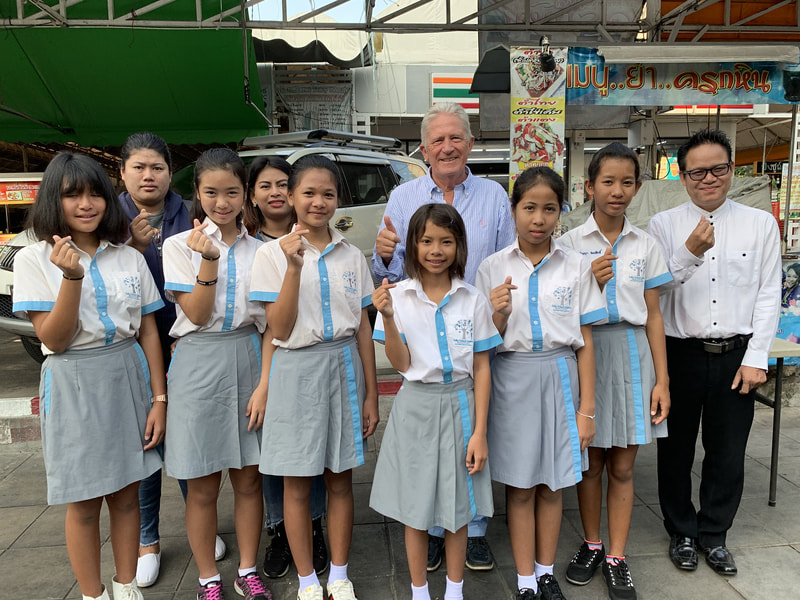
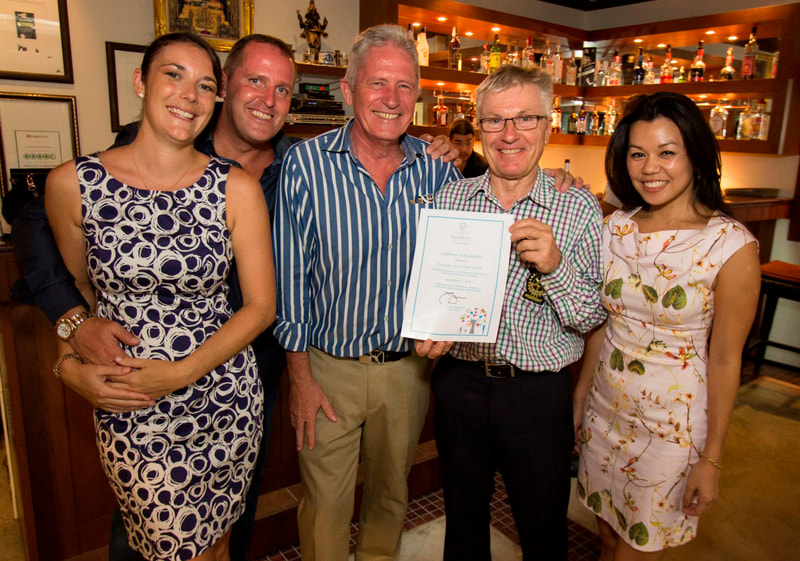
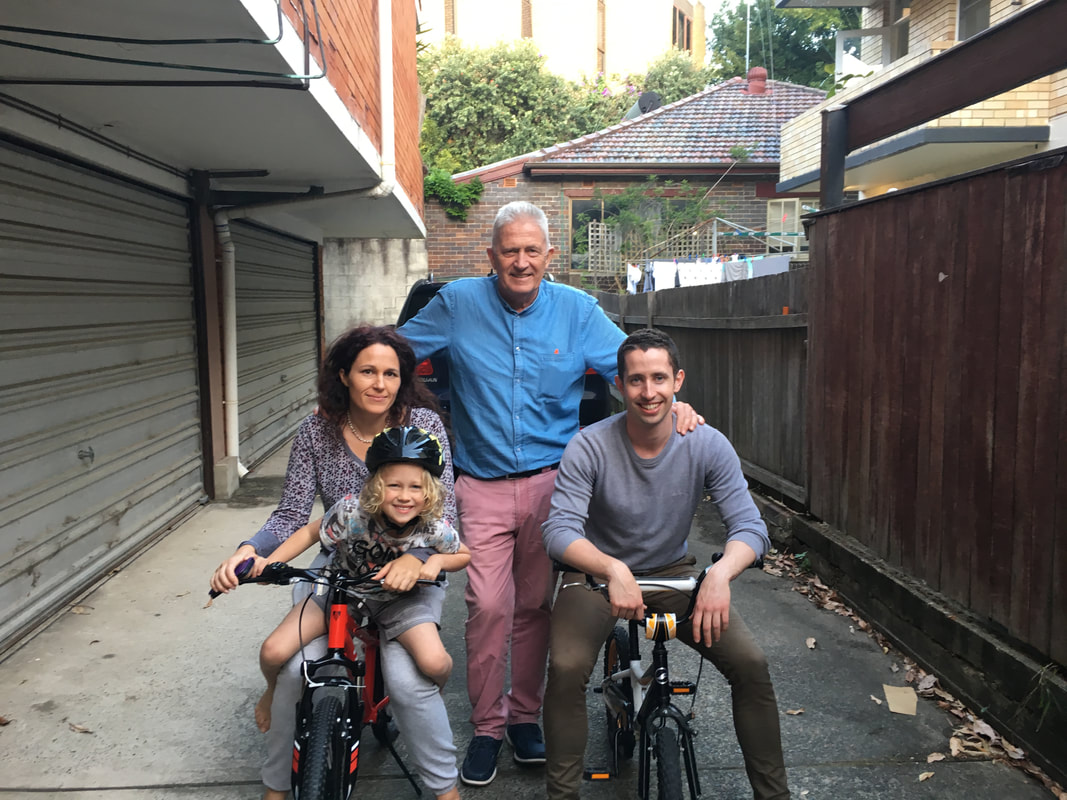
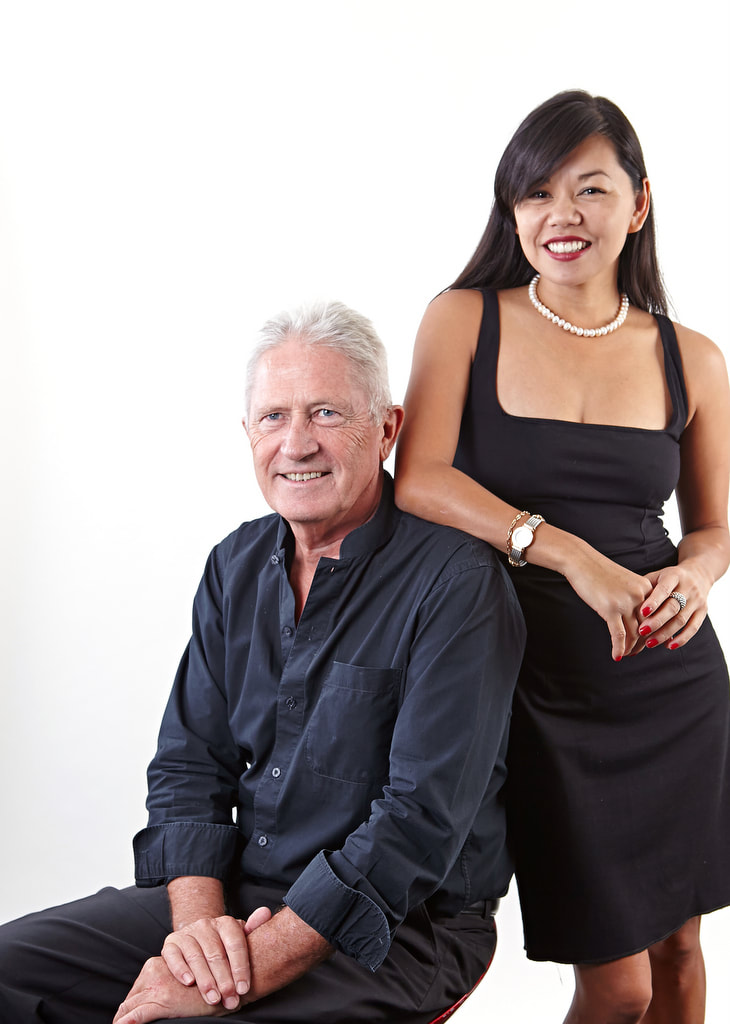
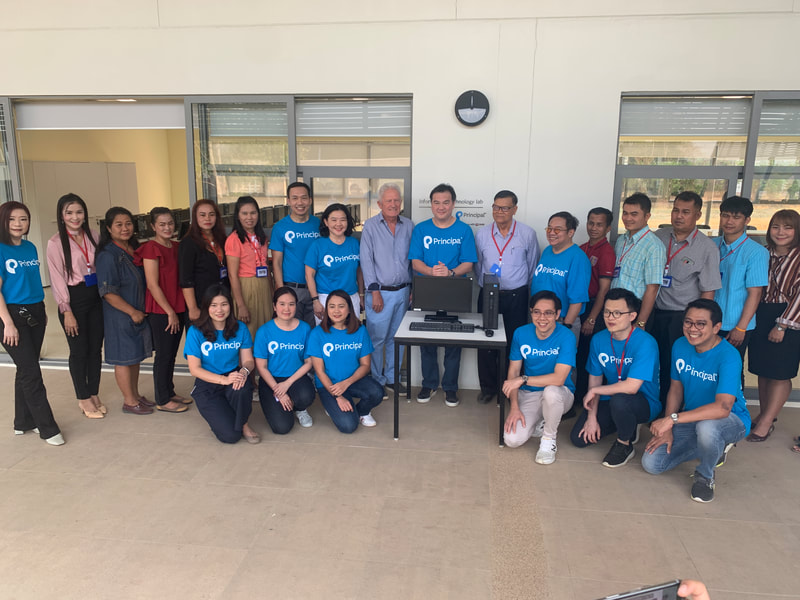
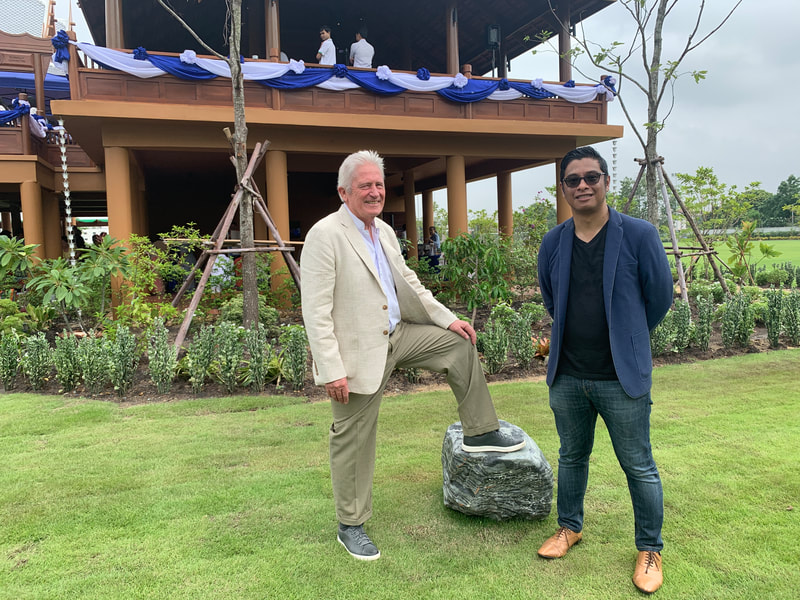
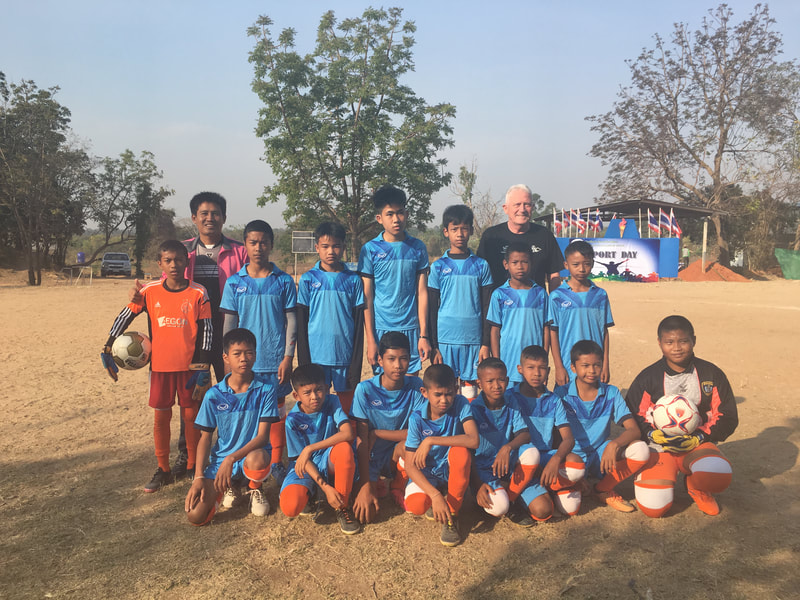
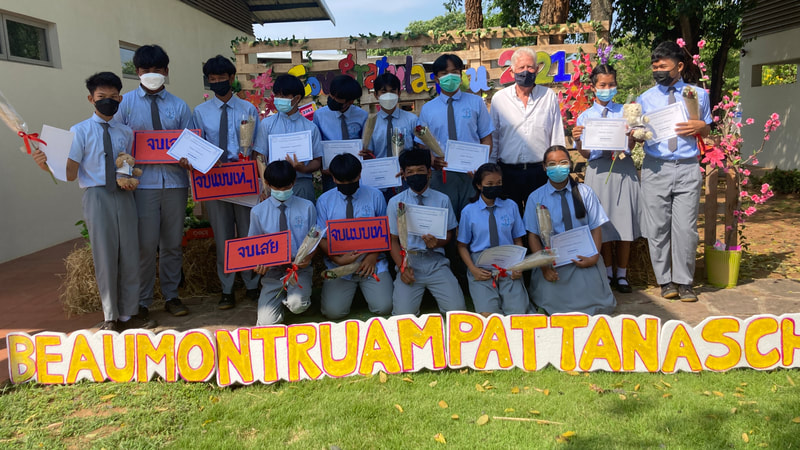
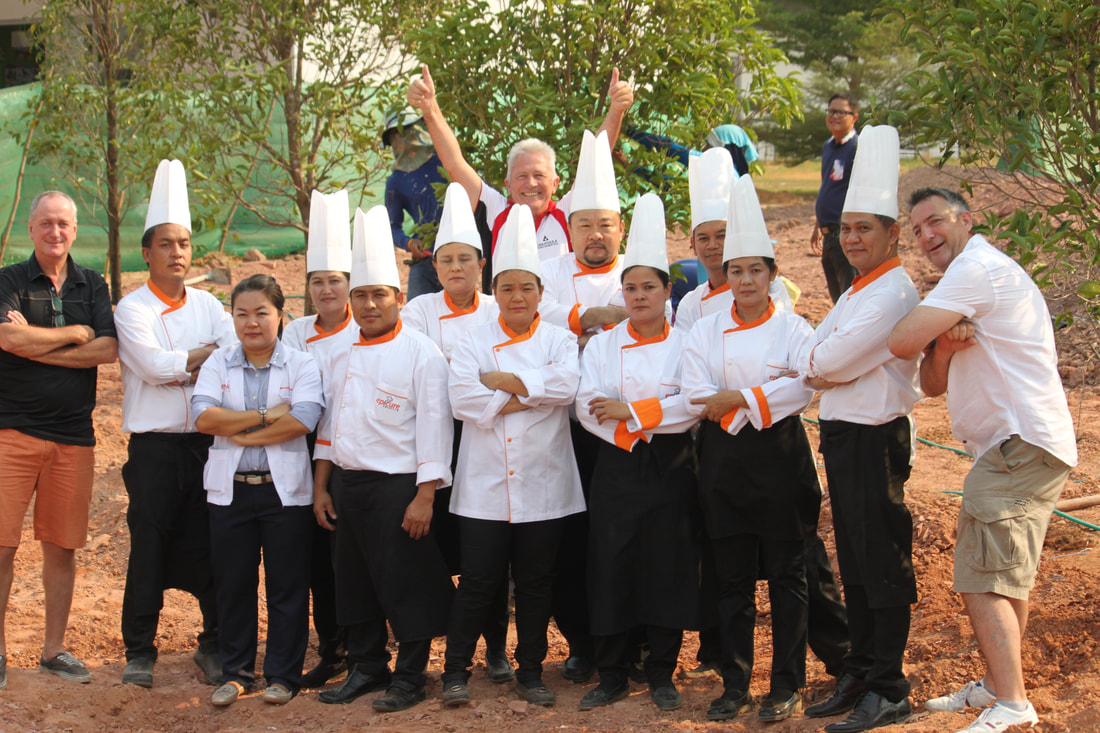
 RSS Feed
RSS Feed
















